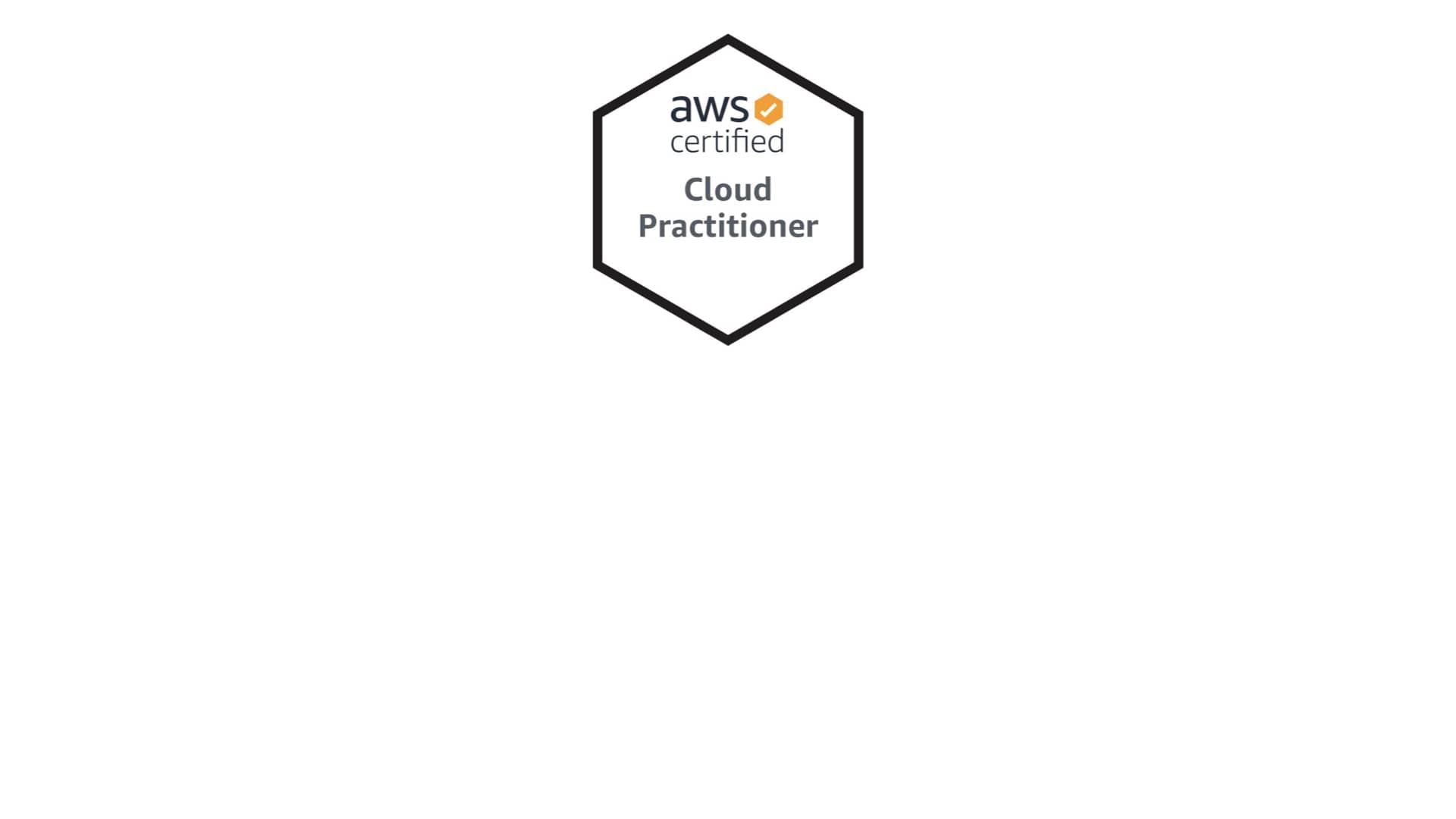This can open up critical pathways in the job market for aspiring practitioners. In one extreme case, I know of a career changer who completed the AWS Security Specialty certification and landed a cybersecurity role based on the merits of that alone (and a strong interview, of course). For myself, I’ve developed an interest in cloud security due to its robust, serverless tooling and see this as a natural progression from my traditional IT background.
What is this certification all about?
An AWS Certified Cloud Practitioner demonstrates a knowledge and understanding of overall AWS cloud systems. This is considered a foundational certification and so does not specialize in areas such as security, though I did encounter a healthy share of security-related questions and topics throughout the study process. Topics ranged from systems migration to cloud data metrics, which went far beyond my on-the-job battles with Elastic Compute 2 (EC2) and Amazon Virtual Private Clouds (the bulk of my experience) and therefore warranted some diligent study.
Who should pursue this certification?
If you have a professional interest in working with cutting-edge cloud computing technologies, or perhaps already do so in your current career, you should consider getting AWS certified. I’ve seen all kinds of technology professionals acquire AWS certifications, ranging from those in my field of cybersecurity all the way to those in software engineering. For newcomers to IT or cybersecurity, in particular, I strongly recommend exposing yourself to cloud technologies to be best prepared for dealing with the highly abstracted infrastructure of the modern era.
What did you do to prepare for the exam?
To prepare for the exam, I used the AWS Certified Cloud Practitioner Study Guide: CLF-C01 Exam 1st Edition as my sole source of practice, as it included a surprisingly high-quality digital test question bank complete with virtual flashcards. Reading through the book and answering the end of chapter questions is a good way to knock out most certifications. However, you will need to take the process seriously and devote much of your free time to it on a regular basis. I know others who completed training from A Cloud Guru and passed the exam. I’ve also heard good things about the Udemy practice test. For me, having access to a quality bank of practice questions is critical to the study process, as this will reveal areas of weakness that warrant further study. In total, I only seriously studied for this exam for a couple of weeks, but the book had been on my shelf (and mind) for a while!
What are the overall costs, and what material is covered?
The cost of the AWS Certified Cloud Practitioner was quite affordable with a $100 voucher and $32.49 study guide. Another upside is AWS does not require a mandatory level of job experience to qualify for taking the exam, opening the door for any determined career changer to pursue a totally novel certification so long as they’re willing to study for it. Of course, vendor-specific certifications can at times feel like advertisements for their various product suites. AWS is leading the cloud service provider (CSP) market, but you might also consider Microsoft Azure and Google Cloud Platform (GCP) certifications if you foresee yourself using those instead, or currently use them on the job. I don’t see myself ever using all the AWS tooling I studied, for example Redshift and Athena, but I needed to study a broad swath of material to be able to understand the functions and features of AWS at large. From a security perspective, it reinforced certain concepts around CloudWatch and EC2 that I found incredibly relevant to the courses I’m teaching.
What was the test-taking experience like?
Ever since the pandemic, testing centers like Pearson Vue have started offering virtual certification exams. When setting up for my exam, I had to set an appointment with Pearson Vue, then do a test run with their downloaded software. The process that proctors utilize is quite thorough as they visually inspect your room via webcam. Per testing policy, they also asked me to empty my pockets and reveal my sleeves (no Aces today!). These protocols have been quite the norm in all remote testing I’ve done, even with other institutions. Despite the inconveniences of clearing out the room, it is valuable to be able to take such an assessment from home.
In the end, what do you really get out of it?
AWS provides a digital badge, for display on LinkedIn. This can help attract recruitment algorithms that are seeking job candidates who possess a certain level of knowledge in the cloud space, or simply make your profile more appealing to visitors and recruiters browsing your profile. Furthermore, certifications are resume items that can help qualify you for a job. I’m no proponent of knowledge-based certifications as a litmus of skill or competency, but they do play a useful role in demonstrating familiarity with a tool, system, or framework. The rigorous study habits required to pass certifications ensure you’re likely to learn some new industry knowledge in the process that can be applied to your work. Combined with on the job experience, certifications paint a compelling picture of a competent professional that takes seriously the industry standards of their era.
What I’ll be studying next
My next target is clearing the AWS Security Specialty certification, which tackles key security areas such as Amazon GuardDuty, CloudTrail, and CloudWatch. If you’re interested in pursuing a certification yourself, check out the AWS certifications overview and map out a strategic roadmap with your mentor.

